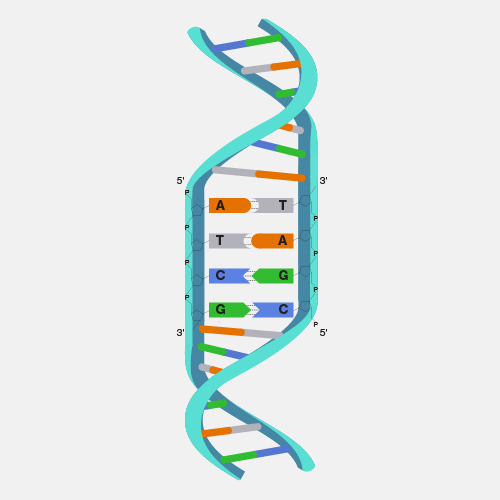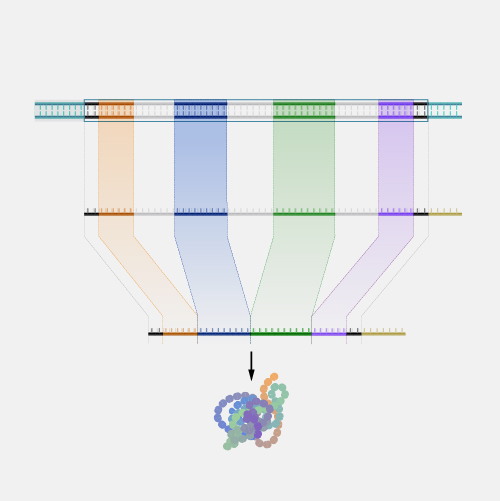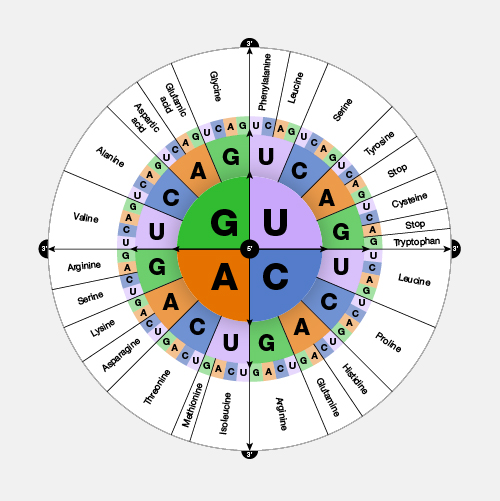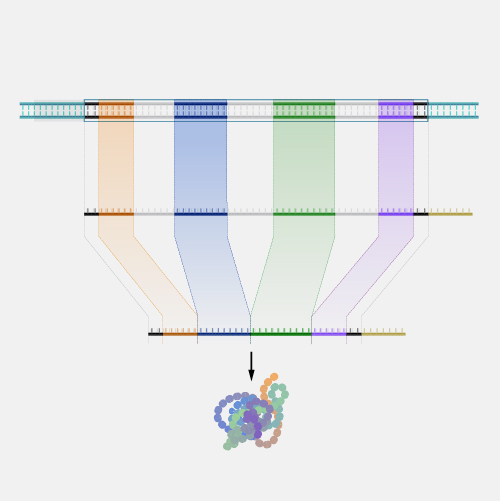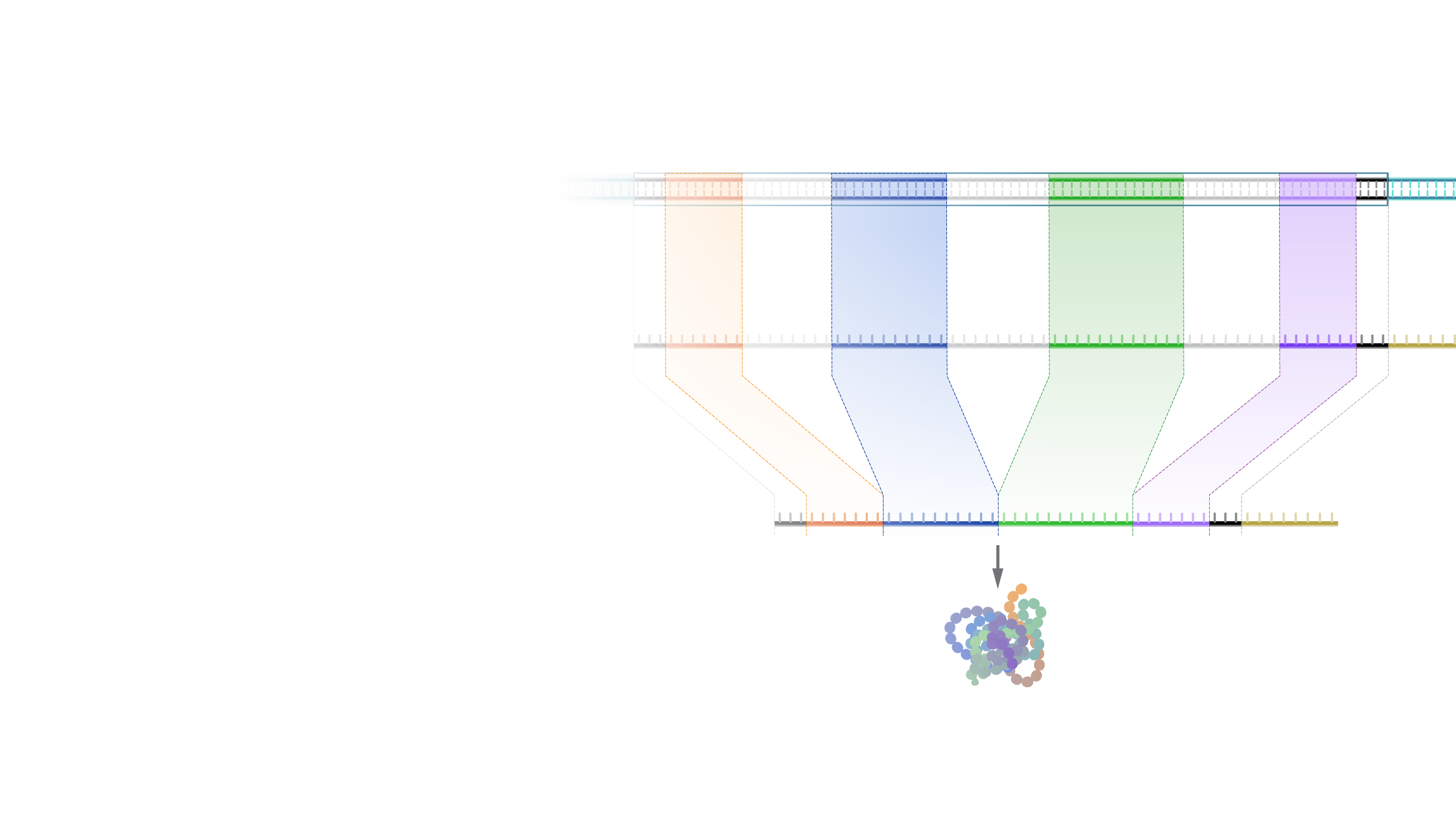
Exon
Definition
An exon is a region of the genome that ends up within an mRNA molecule. Some exons are coding, in that they contain information for making a protein, whereas others are non-coding. Genes in the genome consist of exons and introns.
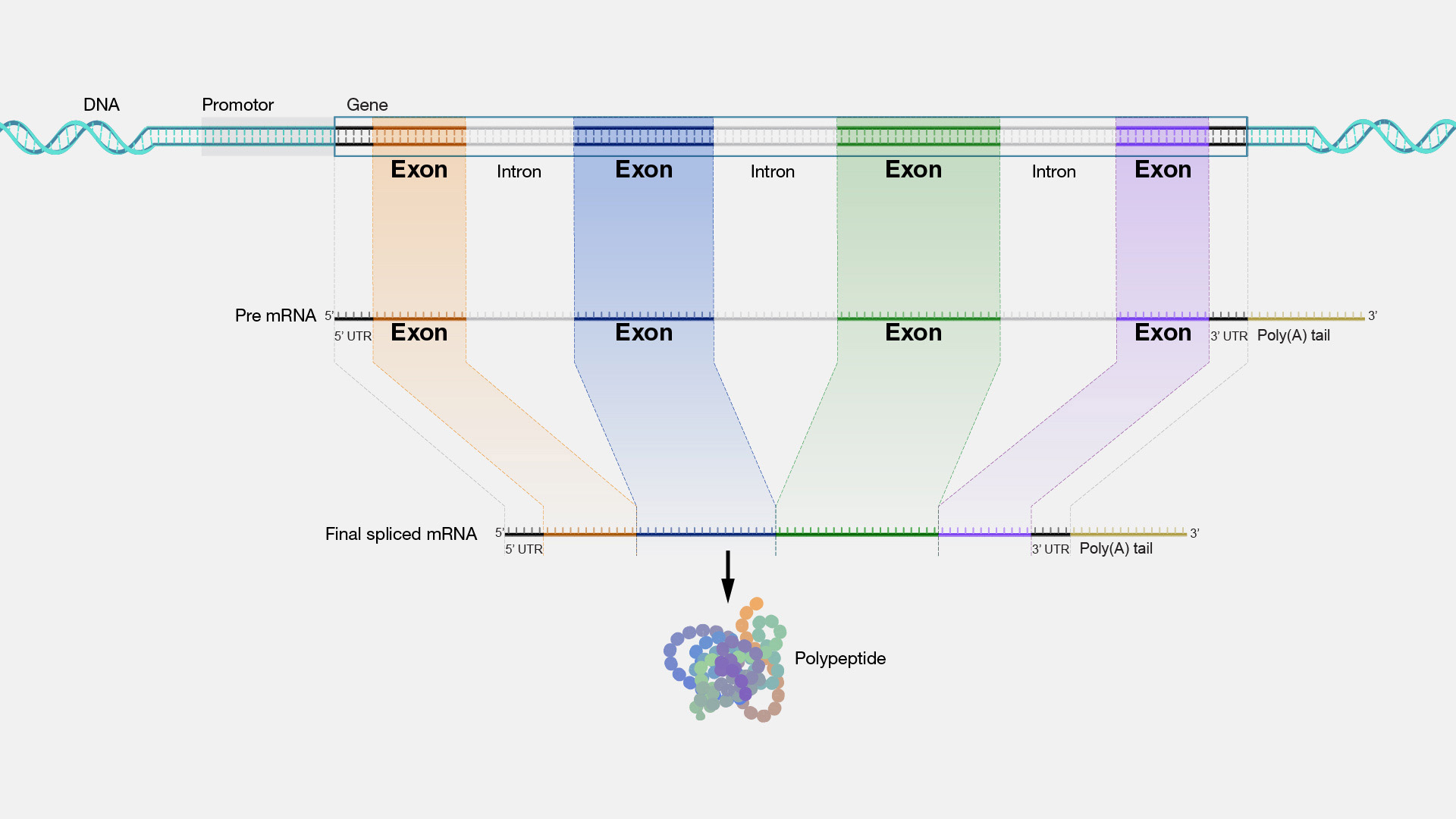
Narration
Exons are that part of the RNA that code for proteins. Now, RNA, when it first gets transcribed, is a very, very long piece of RNA molecule. And really, the important parts of that RNA are the exons. There are large, large chunks of RNA that get excised out. Now, it's important to remember that because I use the term excised doesn't mean that exons go away. The exons are what stay in the mature mRNA and eventually code for amino acids. Many times, including medical students like my wife, will forget whether it's the exons that code for the amino acids or the introns that code for the amino acids. Let me set the record straight that it's the exons that code for the amino acids, because sometimes people try to remember that exons get excised, but that's not true. It's that introns interfere. So you always have to remember that introns interfere, and the introns get excised out of the RNA to leave a string of exons together that will eventually code for the amino acids.

